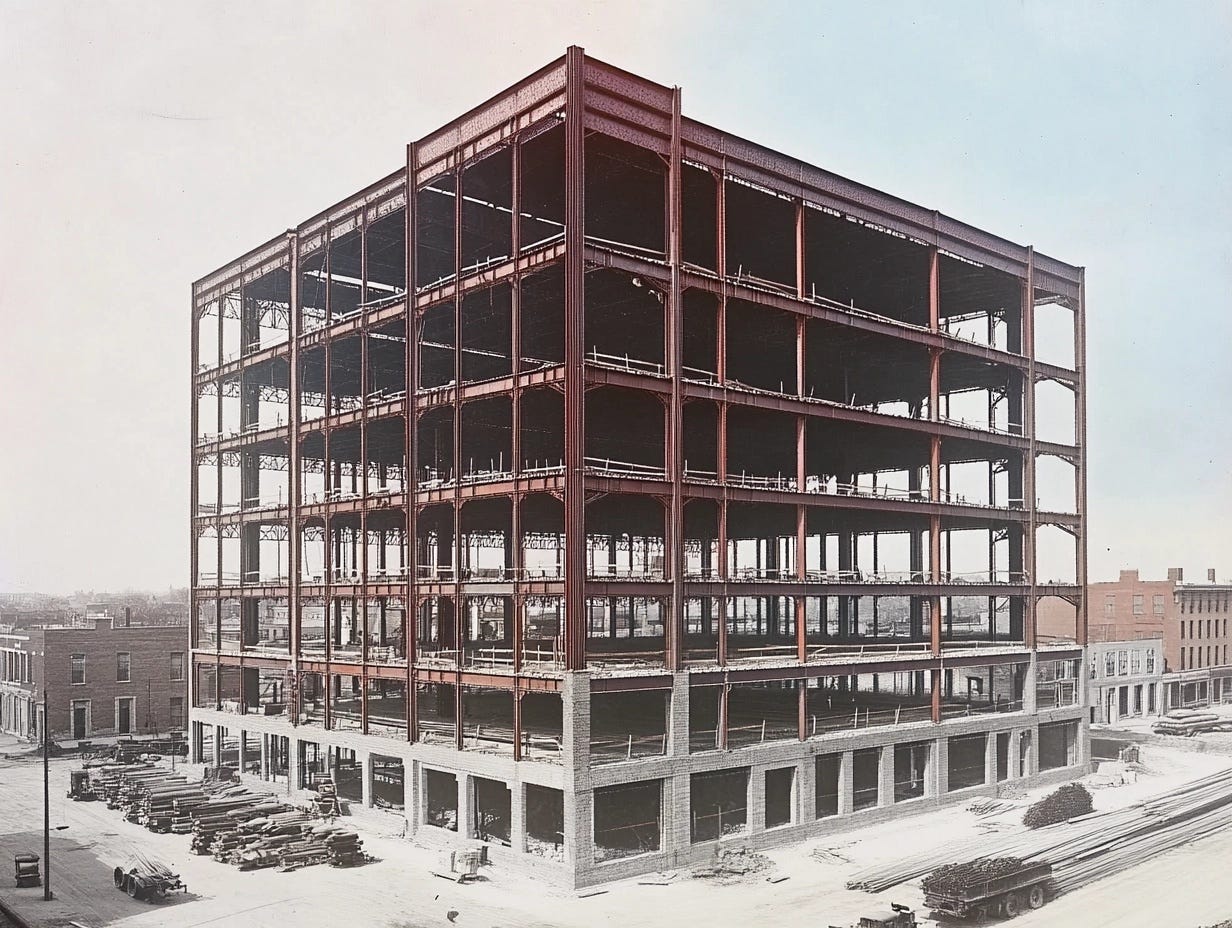Steve Jobs once famously described a computer as a bicycle for the mind. What he meant by this was that the bicycle was capable of multiplying the efficiency of a human’s efforts in order to travel long distances without expending great effort.
Computers have exponentially increased the efficiency of what a human can do in almost every intellectual field.
AI is going to amplify human efficiency at a level never seen before. Lets look at how we got here.
The Industrial Revolution
From 1760 to 1840 the industrial revolution completely changed the physical world. Below are some of the most impactful inventions, and an estimate of how great of a force multiplier each invention created.
Steam Engine (1769) - 200-300× human power
Mechanical Loom (1785) - 40× human power
Railroad Locomotive (1814) - 500-600× horse power (several thousand× human power)
Telegraph (1830s-40s) - thousands× information exchange capacity
Bessemer Converter (1856) - 1,000× skilled metalworker output for production of steel
The industrial revolution changed the world and how we live. This was the beginning of urbanization. 1000x efficiency in construction of steel led to massive demand increase (also known as Jevons Paradox). Cities developed upwards at a pace never seen before.
Pre-Industrial Revolution: Average building height in cities was 2-4 stories (20-40 feet)
Post-Industrial Revolution: Average building heights rapidly increased to 10-20 stories (150-300 feet)
Construction Effort Comparison: Steel-frame buildings required approximately 25-30% of the labor and materials of previous structures
The increase in efficiencies allowed taller safer buildings. Access to affordable metals led to the early stages of modern plumbing, which increased sanitation. This led to massive growth of urban cities.
The industrial revolution changed the physical landscape of the world. It increased agricultural output, made for faster transportation, and increased trade.
I believe AI will have an impact at a similar scale.
Second and third order consequences lead to massive opportunities
The invention and adoption of electricity led to the invention of home refrigerators. One of the greatest financial winners from the home refrigerator was the company Coca-Cola.
The appliance allowed people to enjoy the beverage cold at home rather than only at soda fountains or restaurants. The refreshing taste of an ice-cold Coca-Cola became associated with comfort and leisure, creating a new ritual of home consumption.
Looking back it makes sense, but it would have been nearly impossible for Edison or Westinghouse to predict that they would cause the boom of Coca-Cola.
Where do we go from here with AI
It is nearly impossible to know exactly how the second order consequences of AI will impact the world. However, in the near future (next 5 years) I believe the following fields will be largely impacted by AI:
Self driving: I believe we are roughly 5 years away from full self driving. Once this occurs self driving vehicles should be both safer and faster than human counter parts
Education & training: AI education and training will speed up learning, by crafting an individualized education program for each person. Functionally a personalized tutor for every student, that is fully interactive. Additionally, it is nearly impossible for traditional methods of homework and writing to be effective with students using AI.
Customer service: Most call centers and customer service centers will be able to be handled by AI. This will remove wait times and increase customer experience.
Legal: The concept of billable hours will almost certainly need to change. My guess is that much of the work will be done by task or monthly retainer. Routine and small legal tasks will dramatically come down in cost. Today there are too many errors for AI to work as a stand alone for legal work, however it is great at reviewing contracts and creating a first draft. This will change quickly.
Coding: In 5 years 99% of code will be written by AI. Today many tools like Windsurf allow people to create small programs without any coding skills.
A bicycle for computers
Riding a bike is typically about 3-4x more efficient than walking or running. I think this is a good mental framework for how AI amplifies your ability to use a computer today.
Riding a bike requires a different skillset than walking or running, it is not useful in every situation, and requires specific conditions to be effective. This is almost exactly how I would describe AI today.
The more time you spend working with AI and learning what it can and cannot do the more effective it will be in helping amplify your skills today. That said, almost every month AI becomes more effective.
Conclusion
AI is a tool, not a full and final solution. Treating it like any other tool will greatly increase your ability to use it.
AI will touch almost everything that a computer can touch. This will lead to an impact from AI at a scale similar or greater than the industrial revolution.
Where I used AI in this writing:
I like to write the newsletters myself, I enjoy it and feel it helps me learn and think about the topics more deeply
I do most of my research using AI
All of the images I use are created with AI
Cheers
Josh Bobrowsky






